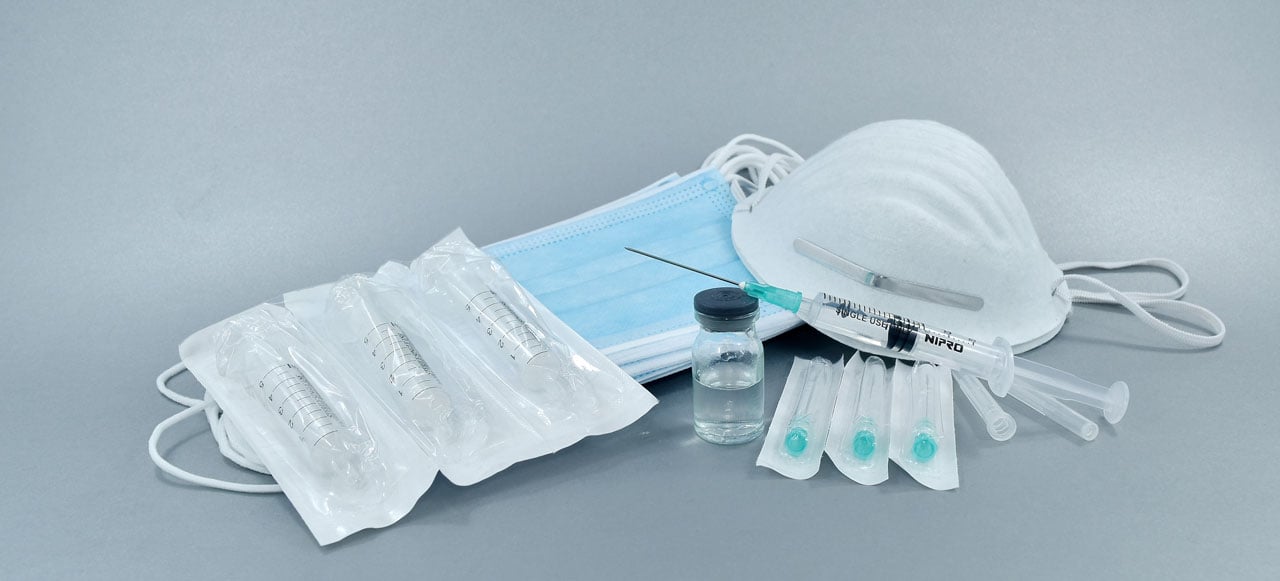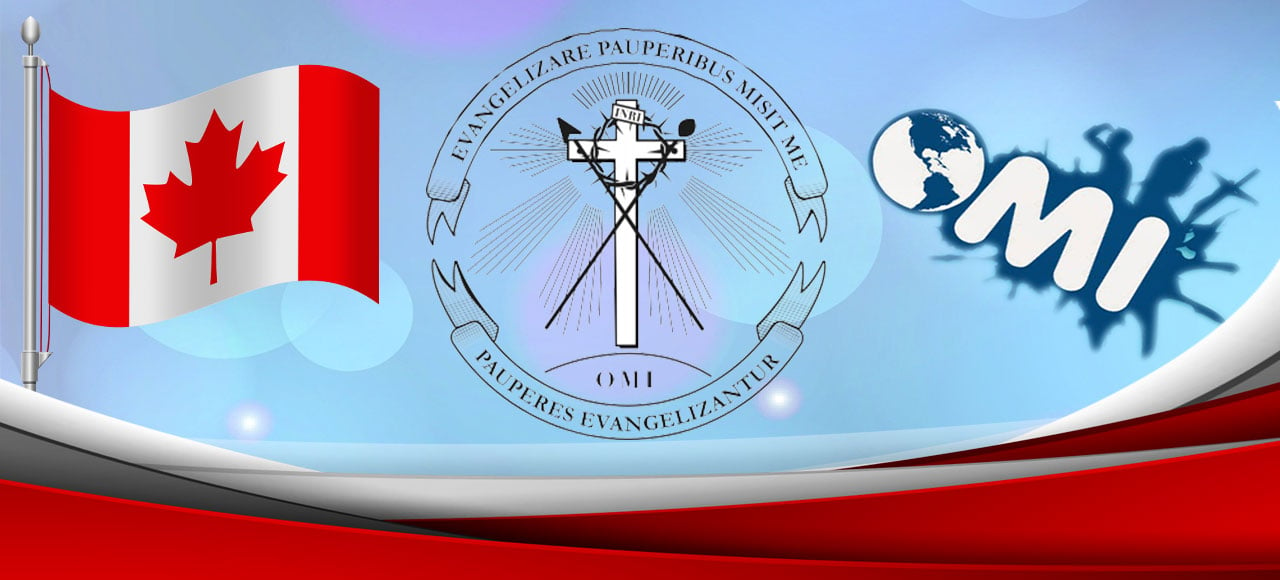The danger of the coronavirus pandemic has not completely receded from us. By May 2020, the United States became the new epicentre of the virus, while Europe showed slim signs of recovery. However, amidst all that, the Oblates around the world remained close to people in many ways. This article discusses how they engaged in the field of health care.
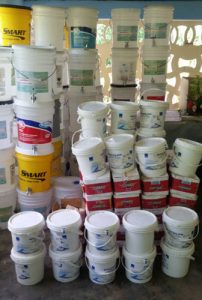
Haiti – hygiene products
In Haiti, the Oblates collaborated with the local health authorities in the awareness campaign about Covid-19. Also on the South Coast the Curé, of the parish of Notre-Dame de la Immaculate Conception took the responsibility of supervising the production of mufflers, gloves, and antiseptic gels in order to facilitate the hygiene of the people of the area.
Indonesian Oblates contributed in the project to provide safety clothing for medical teams who are taking care of the Covid-19 victims. The Scholasticate Community, working together with the Indonesia Red Cross, did a blood donation campaign to help hospitals that have been struggling to keep up to the demand for blood during the pandemic.
The Oblate Mission Procure of the Mediterranean Province looked beyond themselves and extended a helping hand to Venezuela, a mission that comes under the Province. During the pandemic, they intensified the collection and shipment of medicine to Venezuela, in a move to help the already struggling health situation in the country. The Oblate community of Pozuelo de Alarcón (Spain) collaborated with the diocesan Caritas organization in a project for the storage and distribution of food among the needy. More than 1000 lunch packets were distributed daily for 45 days.
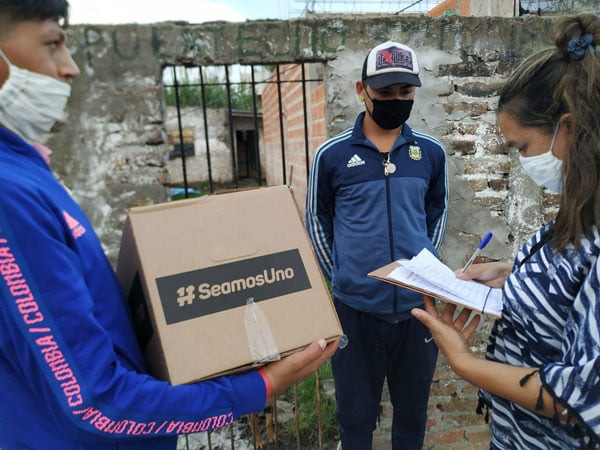
Cruz del Sur
The Mission of Nigeria considered helping the sick, especially the older ones, as one of their priorities during this difficult period. Due to the loss of their jobs, many poor families could not afford to buy prescribed medicine for their sick family members. Thus, the Oblates became the mediators between them and the donors to facilitate the purchase of medicine.
Also in the Philippines Fr. Ponpon and Fr. Ray went out of their way to visit the sick and do funeral rites when required – of course adhering to all precautionary measures. Led by Bro. Noel GARCIA, who is a medical doctor, the Oblates in the diocese facilitated the rapid testing of the religious and clergy of the diocese. All the Oblates in the diocese tested negative to COVID-19.
The Oblates in Paraguay also established a hotline for urgent sick calls so that they could visit and pray over the sick.
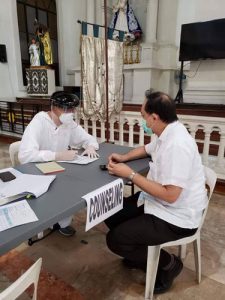
Bro. Noel GARCIA, (in protective suit) giving medical advice to the Bishop Pablo Virgilio David of the Diocese of Caloocan.
The Oblates in Poland became involved in providing personal protection equipment to hospitals and nursing homes. In many places, such as in Koden, they organized projects to sew masks. Two of our houses were turned into quarantine centres for those who were supposed to be in self-isolation but could not do it in their homes due to various unavoidable reasons (Kokotek – for 60 people, Bodzanow – for 10 people). The Oblates would also measure their temperature, serve meals and do the so-called “sample collection” from potentially infected persons to be sent for analysis. Volunteers from the Polish Oblate Youth Ministry “Nineveh” were the first to engage in voluntary assistance in a nursing home that housed Covid-19 patients. In total, six volunteers from “Nineveh” and three Oblates joined this ministry in Lubliniec. In the Oblate Youth Center in Kokotek, an inter-congregational assistance group was formed to serve in social welfare homes in Lubliniec.
St. Michael’s Parish, Saphan Mai, Thailand, made face masks for the refugees and asylum seekers who were under the care of the Desk for Refugees (UNHCR) and the Catholic Commission for Seafarers (Caritas Bangkok). Some Oblate parish priests in South Africa, too, asked the “needle ladies” to make masks for distribution. Hong Kong Oblates also distributed thousands of masks and disinfection liquids among the poor in the city.
Madagascar Oblates of St. Eugene de Mazenod Church in Toamasina never stopped their services to the sick: anointing and giving the sacraments of Penance and Holy Communion; of course, using facemasks and disinfectant gel were obligatory elements of such encounters.
In the meantime, the Oblate Youth China in Guangzhou, unable to gather for Adoration of the Blessed Sacrament, agreed to use their WeChat (social media) group chat to take turns and pray for 24 hours for those affected by the virus.
Two Nuns who belong to one of our sister congregations, The Missionary Oblate Sisters of Mary Immaculate (Oblatas), in Spain (Sr. Katharina Ramrath and Sr. Victoria Romero) were directly involved in helping the sick as nurses.
*** Certainly, the list is not complete, as the intention of this article was to take a glimpse at the daring spirit of the Oblates that shines even brighter in times of need. “Oblati, parati!”
